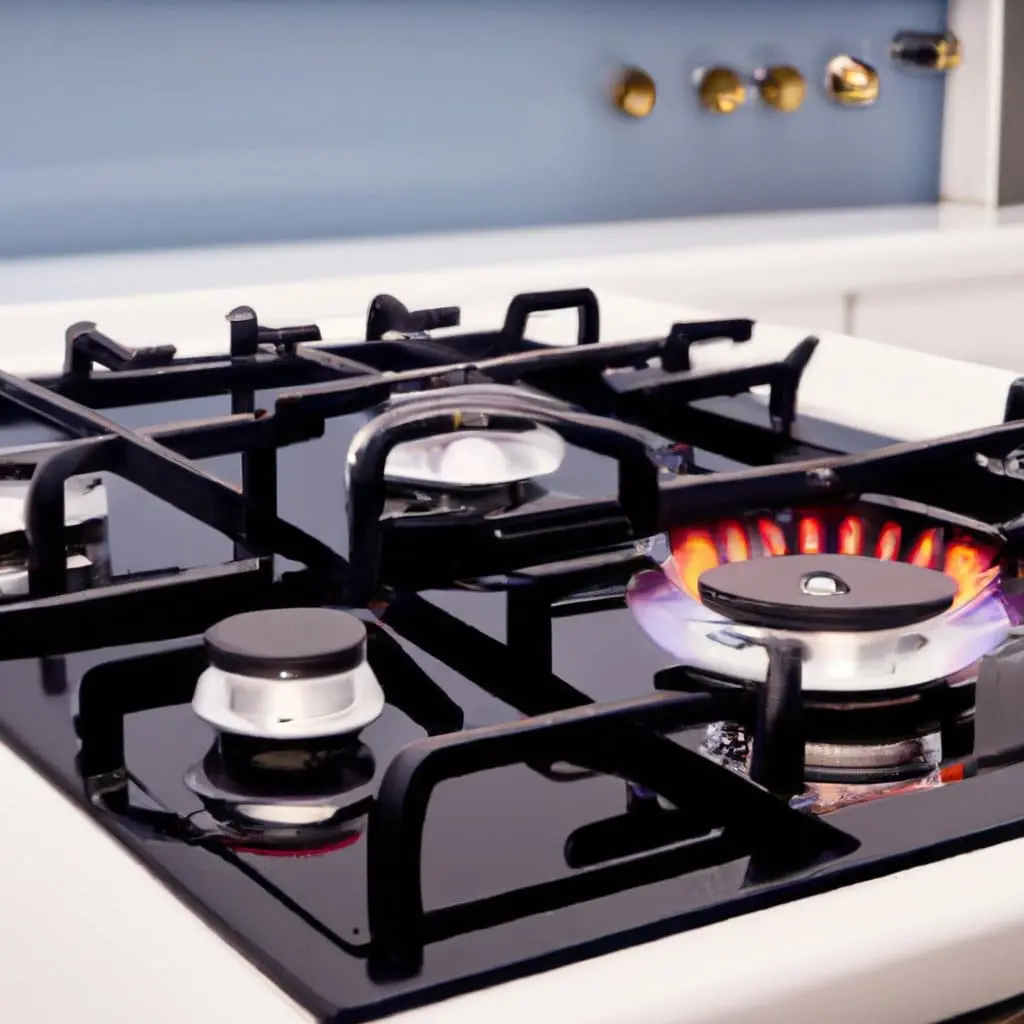Gas cooktops are popular among home cooks, especially those with small families. They’re energy-efficient, easy to move around and clean, and can save you a lot of money if you cook several times a day.
However, gas cooktops have disadvantages — they’re hard to monitor, have flashing colors that can be distracting, and often have unreliable temperature controls. So who installs these units? And how much does it cost?
Here’s what you need to know about who installs cooktops, finding a qualified professional, and how much they typically charge.
Who Installs Gas Cooktops?
Many people are interested in who installs gas cooktops. The answer may depend on where you live and what type of gas cooktop you have. A professional installer will likely be required if you live in a rural area. In urban areas, there are usually many companies that offer this service.
If you have a standard gas cooktop, a plumber or an appliance installer will likely be able to install it for you. However, suppose you have a more complex cooktop, such as one set on a countertop. In that case, you may need to hire a professional.
Some companies offer mobile installation services. This can be a good option if you are still determining who to call or do not have the time to wait for someone to come to your home.
What To Look For When Hiring Someone To Install Your Gas Cooktop?
When installing a gas cooktop in your kitchen, choosing the correct installer is essential. Here are some tips on what to look for when hiring someone to do the job:
1. Check their experience.
It’s essential to choose an installer with a lot of experience with gas cooktops. They should know how to connect the gas line safely and efficiently, and they should also be familiar with the different types of cooktops available.
2. Ask for references.
A good installer should be happy to provide references. Ask these references about the quality of the work, the installer’s professionalism, and the overall satisfaction with the installation.
3. Get quotes from multiple installers.
Don’t just choose the first installer who comes along. Get quotes from several different installers to find the best price and installer for your needs.
4. Look for an installer who is insured and licensed.
Make sure the installer you choose is insured and licensed. This will help protect you in case of any accidents or mistakes during the installation.
5. Ask about the installer’s warranty.
Most good installers offer a warranty on their work. Find out what the warranty covers and how long it lasts.
Choosing the right installer is essential for a safe, hassle-free installation. By following these tips, you can be sure to find the best installer for your needs.
How To Install Gas Cooktop?
Installing a gas cooktop is a reasonably straightforward process. Still, there are a few things you’ll need to know before you get started. Now, we’ll walk you through the steps of installing a gas cooktop and provide you with a list of the tools you’ll need to do the job.
First, let’s take a look at the tools you’ll need for the installation:
– Phillips head screwdriver
– Wrench
– Level
– Tape measure
– Pipe joint compound
– Pipe wrench
– Flashlight
Now that you know what tools you’ll need, let’s take a look at how to install a gas cooktop:
- Shut off the gas supply to the cooktop. The gas supply valve is usually located near the floor.
- Disconnect the old cooktop.
- Remove the screws that hold the cooktop in place.
- Lift the cooktop and set it aside.
- Clean off the area where the new cooktop will go.
- Apply pipe joint compound to the threaded fittings on the cooktop.
- Connect the cooktop to the gas supply line. Be sure to use a wrench to tighten the fittings.
- Connect the electrical wiring to the cooktop.
- Put the cooktop in place and secure it with the screws.
- Turn on the gas and test the cooktop.
Who Installs Gas Lines For Stoves?
In most cases, a plumber will be the one who installs the gas line for your stove. It’s essential to have a professional do this job, as it can be dangerous if not done correctly. Make sure to ask your plumber about their experience with installing gas lines for stoves, and be sure to get a quote before hiring them.
How Much To Install Gas Cooktop
Install Gas Cooktop Cost:
The cost of installation will vary depending on a few factors. The cooktop’s size, the installation’s complexity, and the distance from the gas source all play a role in the final price.
Generally, you can expect to pay between $150 and $200 for installation. If you have a cooktop with a complicated installation process or the distance from the gas source is more significant than average, you may pay more.
Can I Install Gas Cooktop Myself?
You can install a gas cooktop yourself, provided you have the suitable materials and follow the correct instructions. You’ll need a gas cooktop, which you can purchase at any major home improvement store.
In addition, you’ll need a gas line running to your kitchen (if you don’t already have one), and you’ll need to ensure that the line is appropriately capped before you begin the installation.
How Much To Install Gas Stove Line?
The average cost to install a gas stove line is $15 to $25 per linear foot. This includes the cost of materials and labor. The specific cost will depend on the type and size of the gas stove, the length of the gas line, and the complexity of the installation.
It is essential to have a professional install a gas stove line. This is because there is a risk of fire or explosion if the line is not installed correctly. A professional will have the necessary tools and experience to install the line safely and correctly.
Do You Need A Professional To Hook Up A Gas Stove?
Many still determine if they need a professional to hook up their gas stoves. The answer is maybe. You can do it yourself with the proper tools and know-how.
However, hiring a professional is probably best if you need more confidence in your abilities. Either way, ensure you follow all the safety precautions to prevent accidents.
Can I Replace A Gas Cooktop Myself?
Kitchen appliances are an essential part of any home, and the cooktop is one of the most commonly used appliances in the kitchen. If your cooktop is damaged or stops working, you may wonder if you can replace it yourself.
The answer is yes, you can replace a gas cooktop yourself – but it is not a job for beginners. You will need some essential tools, including a wrench and screwdriver, and you will need to be familiar with the workings of a gas cooktop. If you are uncomfortable with this repair, it is best to call a professional.
Does A Cooktop Need To Be Installed By An Electrician?
Many people think they can easily replace an old cooktop with a new one, but this is different. It would help if you had an electrician come and do the job for you. They will need to disconnect the old cooktop and install the new one. This is not a job you can do yourself, so don’t try.
Do You Need A Plumber To Install A Gas Hob?
You might wonder, do you need a plumber to install a gas hob? The answer is generally no, as long as you feel confident following the manufacturer’s instructions. However, if you need more clarification, or would feel more comfortable with a professional doing it, then, by all means, hire a plumber!
Is It Cheaper To Install A Gas Or Electric Stove?
Installing a gas stove is cheaper than installing an electric stove. This is because gas is more affordable than electricity, and you will need less gas to run your stove than you will electricity. In addition, a gas stove is easier to install than an electric stove.
The Final Words
From the article, it can be inferred that gas cooktops are usually installed by professionals who typically charge a fee for their services. It can also be assumed that there may be some installation instructions provided by the manufacturer of the gas cooktop that needs to be followed for the cooktop to function correctly.



